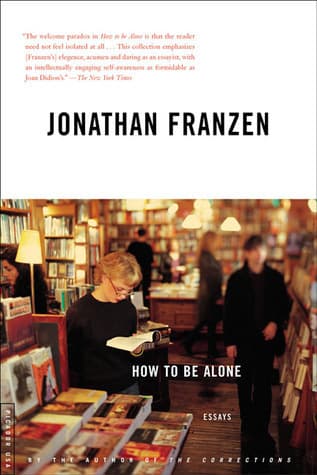
Book Review Summary: How to Be Alone
Introduction
"How to Be Alone" by Jonathan Franzen is a collection of essays that delves into various themes, ranging from the erosion of civil life and private dignity in postmodern America to the persistence of loneliness and the role of technology in shaping our cultural landscape. Franzen, the National Book Award-winning author of "The Corrections," presents his sharpest and most entertaining social critiques in this collection.
About Jonathan Franzen
Jonathan Franzen is an acclaimed author known for his thought-provoking and insightful writing. He has published several novels, including "The Corrections," which won the National Book Award for fiction in 2001. Franzen's essays explore a wide range of topics, from personal experiences to societal issues, showcasing his ability to tackle complex themes with wit and intelligence.
Analysis of Views
-
Loneliness and Isolation: Many readers appreciate Franzen's exploration of loneliness and the challenges of finding solitude in a world that values social connections. They find his insights into the human condition thought-provoking and relatable.
-
Honesty and Authenticity: Franzen's candidness and willingness to confront difficult topics, such as his father's battle with Alzheimer's disease, resonate with readers. They appreciate his honesty and the vulnerability it reveals.
-
Critique of Technology: The essays in "How to Be Alone" often critique the impact of technology on society and the decline of reading as a solitary activity. Readers appreciate Franzen's perspective on the role of technology in shaping our cultural landscape and his call for a return to more meaningful forms of engagement.
-
Personal Reflections: The collection includes personal essays that delve into Franzen's own experiences, such as his relationship with his father and his brief stint as an Oprah Winfrey author. Readers find these reflections relatable and enjoy the glimpse into Franzen's personal life.
-
Writing Style: Franzen's writing style is praised for its clarity, wit, and ability to convey complex ideas. Readers appreciate his ability to engage them intellectually while maintaining a conversational tone.
Reasons for Recommendation
-
Thought-Provoking Content: The essays in "How to Be Alone" tackle important themes and offer fresh perspectives on loneliness, technology, and the human condition. Readers find the content thought-provoking and intellectually stimulating.
-
Honesty and Authenticity: Franzen's willingness to confront difficult subjects and share personal experiences resonates with readers, who appreciate his honesty and authenticity as a writer.
-
Engaging Writing Style: Franzen's writing style is praised for its clarity, wit, and ability to convey complex ideas accessibly. Readers find it enjoyable and appreciate the intellectual challenge presented by the essays.
Reasons for Not Recommendation
-
Dated Content: Some readers find the essays in "How to Be Alone" dated due to their publication date in the mid-1990s. They argue that certain topics covered in the book may no longer be relevant or have been superseded by subsequent developments.
-
Lack of Conclusion: A few readers express disappointment that there is no overarching conclusion or thesis statement in "How to Be Alone." They feel that without a clear resolution or takeaway, the book lacks cohesion and direction.
Conclusion
"How to Be Alone" by Jonathan Franzen is a collection of essays that delves into themes such as loneliness, technology, and the human condition. The book offers thought-provoking content, exploring the challenges of finding solitude in a world that values social connections. Franzen's honesty and authenticity as a writer resonate with readers, who appreciate his willingness to confront difficult subjects and share personal experiences. While some readers find the content dated or lacking a clear conclusion, overall, "How to Be Alone" is recommended for those seeking intellectual stimulation and a fresh perspective on contemporary issues.